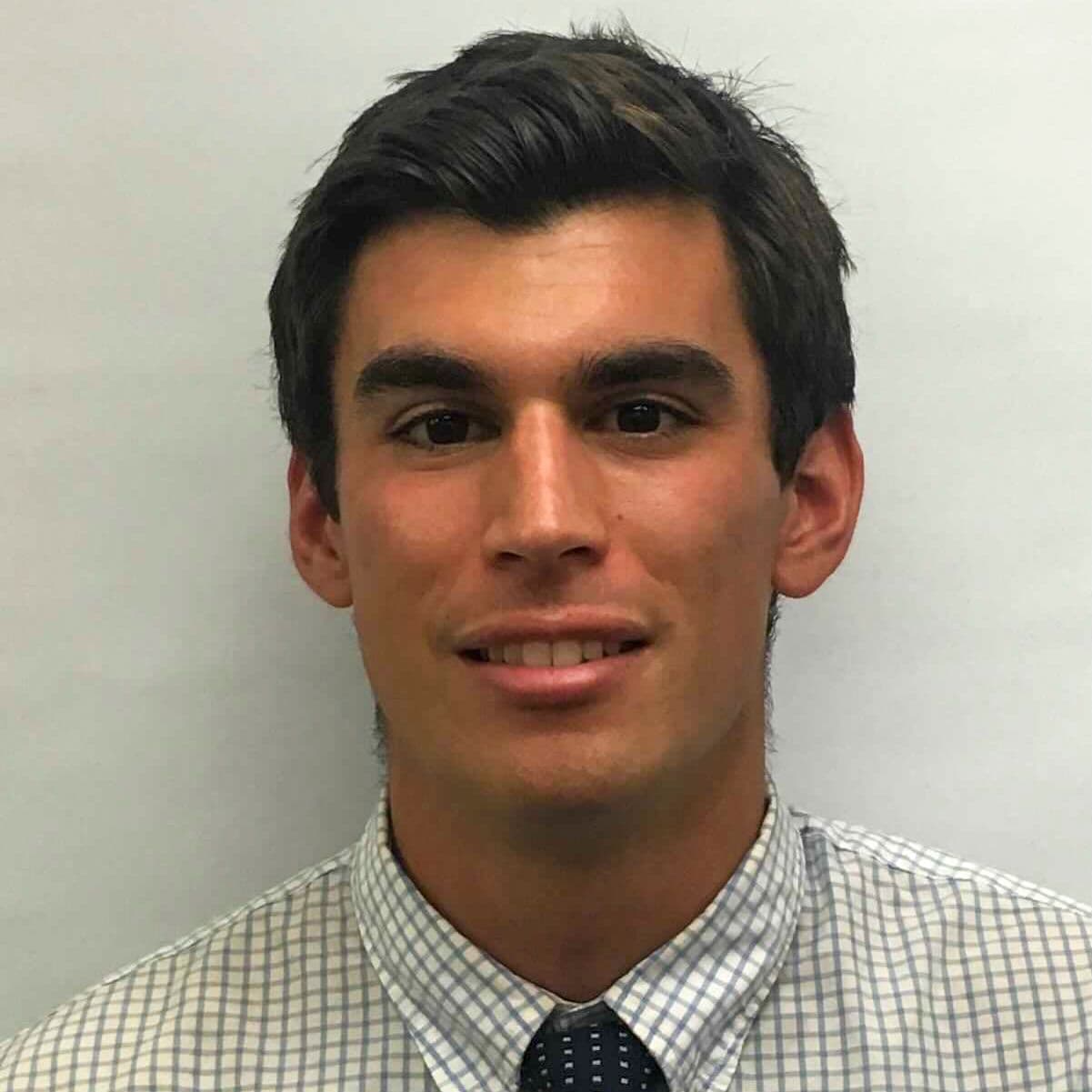
5 Tips for High School Students Considering Medicine
Here are some tips to high school students who are considering a career in medicine, advice about initially making the decision to pursue medicine, and how to develop the skills necessary to be a medical student.

My name is Alejandro and I am a third-year medical student. I enjoy what I study and am excited to begin my career as a physician in the summer of 2023.
The purpose of this post is to give study tips to high school students who are considering a career in medicine. The advice begins with more general advice about initially making the decision to pursue medicine, then proceeds to become more specific about how to develop the skills necessary to be a medical student. I hope that I can inspire future physicians who will make significant contributions to medicine.

1. Know your motivations and reasons for becoming a doctor.
Before you decide that you will go down the arduous journey of becoming a doctor, I suggest you become aware of what is motivating you. I believe that becoming a doctor for reasons such as: the degree comes with cultural prestige, it pays a competitive salary, or you would make your parents happy are all ill-advised.
Becoming a doctor is extremely stressful and requires tremendous sacrifice. People who become doctors for the money or for their parents can be good doctors, but they may live unfulfilled lives. The combination of embarking on a career with a very stressful lifestyle to impress or please others sounds like a perfect recipe for self-destruction.
Becoming a doctor requires relentlessness in many ways. For example, many doctors, including extremely successful and bright ones, do not get accepted to medical school until their 2nd or 3rd year of applying. Similarly, a physician presented with a sick patient who has an undiagnosable collection of symptoms cannot give up until he finds a solution to the patient’s problems. If your intentions to become a doctor are genuine, I believe that it is easier to shake off the rejections/failures and not lose sight of your dream of becoming a doctor and/or healing a patient.
Now, if you want to become a doctor because you love the problem-solving aspect of science/medicine, or love being a leader when it comes to helping people, or you have a life experience that motivated you to find a medical solution for someone that you care about (or another sound motivation) then I would be thrilled if you choose medicine.
2. Develop good study habits... ASAP!
I believe that becoming a good doctor does not require remarkable intelligence. Maybe you’re lucky and you’re one of the elite people in this world who hardly needs to study to obtain outstanding scores. Maybe you have mediocre scores but your organizational skills could use refining. Or maybe you’re a mess and never considered yourself particularly outstanding, but you’ve become motivated to become a doctor. The truth is that all of you can become doctors.
Medical school requires a tremendous amount of memorization, repetition and practice. Being the brightest person in your class will hardly help when memorizing every bone and muscle in the human body. The most successful medical students are the ones with the determination to sit and review the material over and over again. In fact, I’ve found that sometimes the smartest students are the more arrogant ones who believe they can get by with little effort. Plenty of less intelligent, but highly motivated, students have surpassed the smartest ones because of their discipline and perseverance. The earlier that you develop strong study habits, the better you will be.
That said, I will now go into specifics about how to obtain strong study habits.
3. Take the initiative to make your own study plans
In high school, the teacher often lays out a general schedule of when topics should be learned by and the test date. As a tutor and teacher, I’ve found that many high school students take these schedules literally and never question if it is what is best for them. Instead of just doing what the teacher says, make your own study plan. Determine what you know well and where you need more practice. If you need to review the cell cycle before your bio test next week and you weren’t clear on the corresponding assignment from the week before, make sure you make the time to go back to study the cell cycle before you become anxious as you cram everything the night before the test.
Additionally, are you like many “over-scheduled” high school kids who do dance, football and everything in between? You have to take the time to plan for study time as an essential part of your busy schedule. If you have an exam on Friday, but a big game on Thursday night, make sure to plan time on Monday-Wednesday to review the material and follow through with the plan.
It’s one thing to make a good study plan, but it’s often hard for high school students to follow through with their plans. To be a successful pre-Med student, and a way to hold yourself accountable and follow through on your plans. One way might be to involve others. If you plan on having study groups Mon-Wed, then others will be counting on you to show up and perform. You’ll get the studying done. Another way is to rely on a system, like check-lists or an app, like Trello. Make lists of everything you must get done daily and hold yourself accountable to working through the list diligently every day.
I also found these articles very helpful for improving your study habits:
https://www.princetonreview.com/college-advice/back-to-school-study-tips
https://student-tutor.com/blog/top-10-high-school-study-tips/
https://ivytutorsnetwork.com/blog/want-to-master-standardized-testing-find-out-your-learning-style
4. Take small steps to improvement
Maybe creating your own study plan sounds like an alien language to you. If so, I suggest starting with small improvements. Let’s go back to the example above of having a test Friday but a big game on Thursday night. If you are incapable of completely preparing for the exam Monday-Wednesday, that’s fine. Maybe start out with doing light reviews early in the week so that you at least have a lighter study load the night before the exam.
Make incremental changes, not everything at once. If you usually would study on Thursday night only and this time, you managed to study Monday and Thursday, be proud of the progress you’ve made and try to keep improving. In fact, many of my medical school classmates and I are continuing to improve our study habits every day. I recently took my board exam (!!) and created a study schedule for every day of the 3 months it took me to study. I studied 12-14 hours per day with every hour of the day planned (6 days per week). It was the hardest that I ever studied for an exam and I was proud that I was able to develop my study habits enough to get to that point. If you asked me 3 years ago if I thought I could prepare so diligently for something, I would have probably laughed at you. Small and steady improvements got me to where I am. I believe that most, if not all, of my classmates can tell you similar stories of improvement. Even if you have strong study skills now, I suggest looking for more ways to improve them.
Please note that my study schedule included one rest day per week. Part of creating an effective study schedule is being mindful of the rest your brain and body need. I undoubtedly would not have been able to complete those three months of studying without taking the short rest periods that I did.

5. Gain exposure to medicine
You may be lucky and have a family member or another adult who is a doctor. If so, I suggest you reach out to them and ask if you can shadow them for a couple of days. You will follow them around and see if medicine is truly something that you are attracted to.
If you don’t have a relationship with a doctor, that’s fine too! Taking initiative is a big part of becoming a doctor. You could simply email many physicians in your neighborhood, asking if you could shadow them. There’s a good chance many of them won’t respond, but there are plenty of physicians who will be extremely impressed that a high school kid took the initiative to write an email asking for career help.
Taking initiative is a trait that is never taught in high school or pre-med courses; yet, it is integral to becoming a successful physician. You can also reach out to your academic advisors at school to see if they have a relationship with any programs that allow high school students to shadow physicians. These experiences will also stand out when you apply to college and even, once you are in college, when you apply for internships as a pre-med student!
Thank you for reading and I hope you choose medicine.

